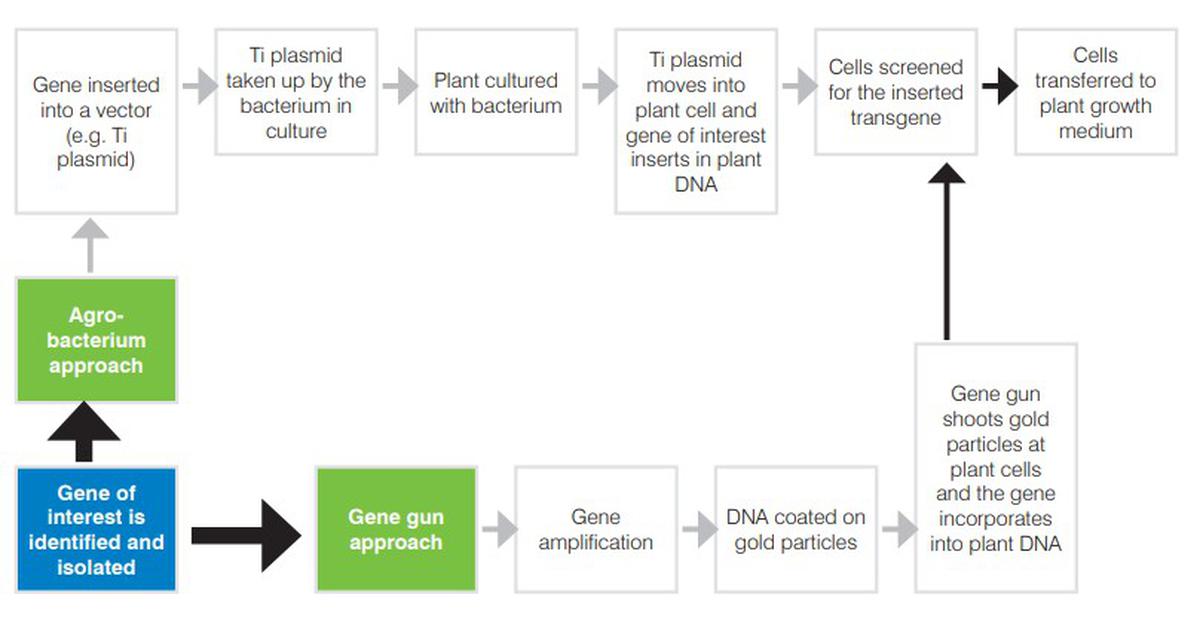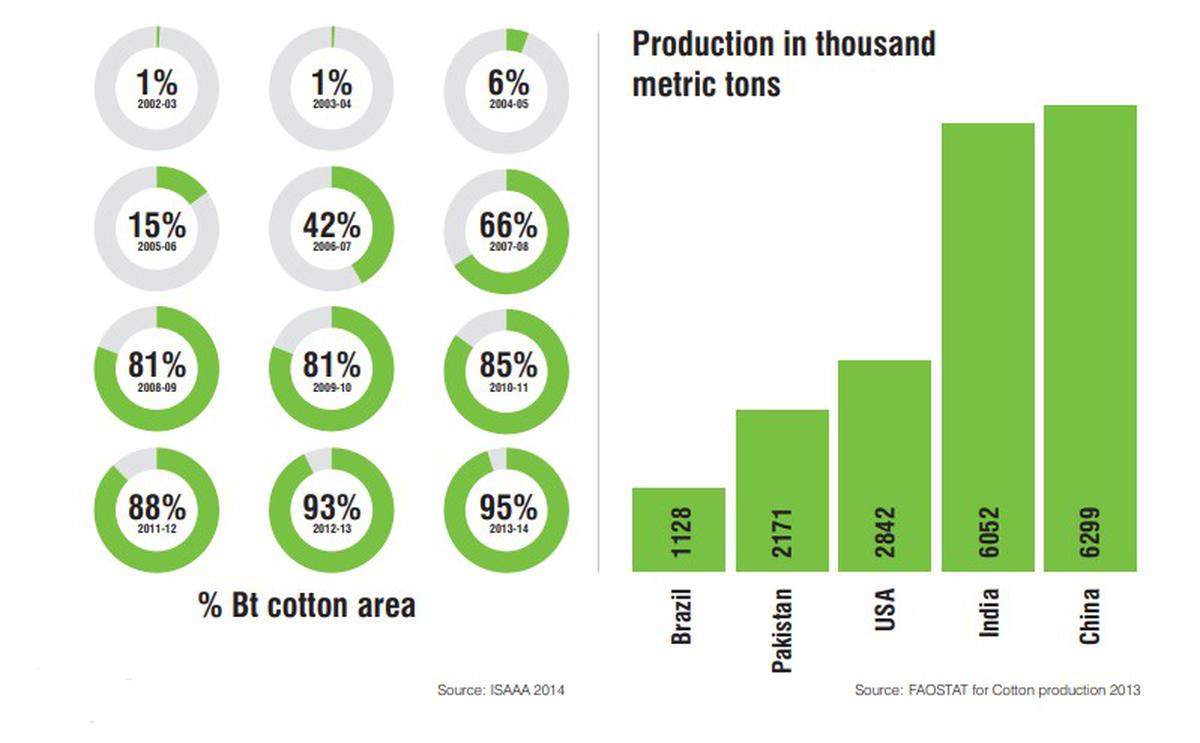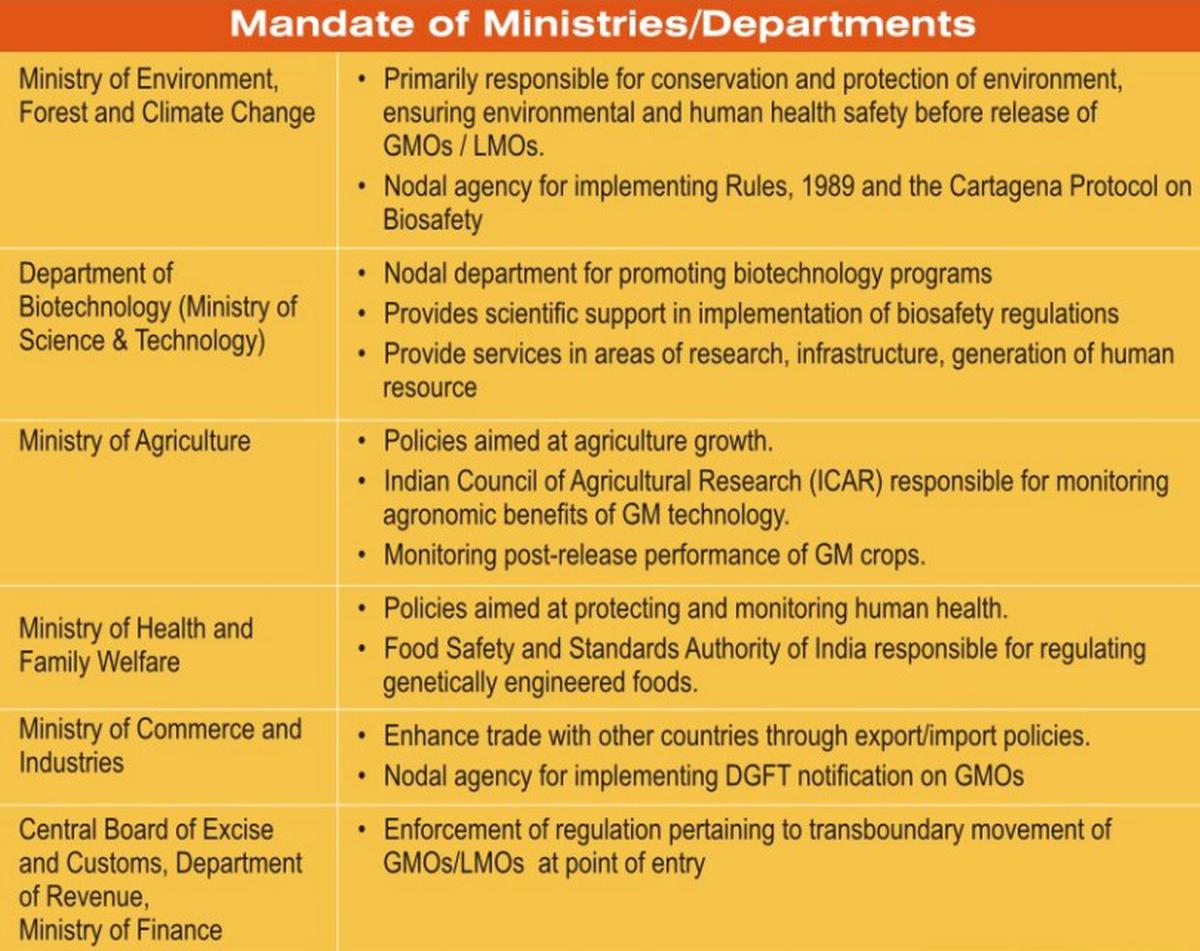Strict regulations are in place to control threats to animal health, human security and biodiversity at large during the processes of growth, cultivation and cross-border movement of GM crops.
Strict regulations are in place to control threats to animal health, human security and biodiversity at large during the processes of growth, cultivation and cross-border movement of GM crops.
the story So Far: The Genetic Engineering Appraisal Committee (GEAC) of the Environment Ministry had on October 18 approved the proposal for commercial cultivation of Genetically Modified (GM) mustard. The GEAC had earlier approved the proposal in 2017, but it was vetted by the ministry and the committee was asked to conduct further studies on the GM crop. The GEAC recommendation will again go to the environment ministry for approval.
The latest GEAC approval allows the environmental release of two genetically engineered mustard varieties to develop new parental lines and hybrids under the supervision of the Indian Council of Agricultural Research (ICAR).
What is GEAC?
The Genetic Engineering Appraisal Committee (GEAC), under the Ministry of Environment, Forest and Climate Change (MoEF&CC), is responsible for evaluation of proposals relating to the release of genetically engineered organisms and products into the environment, including experimental field trials.
GEAC or those authorized by it has the power to take punitive action under the Environment Protection Act.
What are genetically modified crops?
A genetically modified organism (GMO) is any living organism whose genetic material has been modified to incorporate certain desirable techniques. Genetic modification has previously been used extensively to produce insulin, vaccines, and more.
Development of crop improvement | photo credit: GEAC
In crops, genetic modification involves the manipulation of DNA—rather than using controlled pollination—the traditional method of improving crops to alter certain characteristics of the crop.
Soybean, corn, cotton and canola are the most widely grown GM crops worldwide with herbicide tolerance and pest resistance. Other common genetically modified characteristics include virus resistance, drought resistance, and fruit and tuber quality.
To genetically modify a crop, the gene of interest is identified and isolated from the host organism. It is then incorporated into the DNA of the crop being grown. GM crop performance is tested under strict laboratory and farm conditions.

GM Crop Growth Process | photo credit: GEAC
GM crops in India
Indian farmers started cultivating Bt cotton, a pest resistant, genetically modified version of cotton, in 2002-03. Bt amendment is a type of genetic modification where the Bt gene is derived from a soil bacterium. bacillus thuringiensis The target is introduced into the crop – in this case, cotton. Bt cotton is resistant to the bollworm, a pest that destroys cotton plants.
As of 2014, about 96% of the area under cotton cultivation in India was Bt cotton, making India the fourth largest farmer of GM crops and the second largest producer of cotton.

cotton cultivation
regulatory framework in india
Strict regulations are in place to control threats to animal health, human security and biodiversity at large during the processes of growth, cultivation and cross-border movement of GM crops.
Acts and rules regulating GM crops in India include:
-
Environmental Protection Act, 1986 (EPA)
-
Biological Diversity Act, 2002
-
Plant Quarantine Order, 2003
-
GM Policy under Foreign Trade Policy
-
Food Safety and Standards Act, 2006
-
Drugs and Cosmetics Rules (8th Amendment), 1988

regulatory framework | photo credit: GEAC
Broadly speaking, the rules include:
-
All activities related to research and development of GMOs
-
Field and clinical trials of GMOs
-
Intentional or unintentional release of GMOs
-
Import, Export and Manufacture of GMOs
What is GM Mustard?
The Dhara Mustard Hybrid (DMH-11) was developed under a government-funded project by a team of scientists from the University of Delhi led by former Vice Chancellor and Genetics Professor Deepak Pental. It uses a system of genes from a soil bacterium that makes mustard – typically a self-pollinating plant – better suited for hybridization than current methods.
In September 2017, a feasibility report stated that the developers of DMH-11 had claimed a yield increase of 25-30% over non-hybrids, which was denied by several NGOs.
However, even a yield increase of 25-30% “does not seem sufficient to promote the introduction of IP and labeling requirements at all levels, especially at the level of small and medium farmers as a result of the introduction of such a system,” the report said. The expected price preference will decrease significantly as a result of the increased yield.
GEAC approves “Environmental release of Mustard hybrid Dhara Mustard Hybrid (DMH-11) for its seed production and testing as per extant ICAR guidelines and other extant rules/regulations before commercial release”, at its 18 October meeting Said in minutes.
Recommendations of the 18th October meeting
GEAC recommends:
-
Environmental Release of “Genetically Engineered Mustard Parental Lines bn 3.6 Carrying Barnage & Bar Jeans, and Modbs 2.99 Containing Barstar & Bar Jeans”
-
Environmental release of mustard hybrid DMH-11 for seed production and testing as per extant ICAR guidelines
-
Conducting field demonstration studies on the effects of GM mustard after environmental release on honey bees and other pollinators
The approval is limited to a period of four years, renewable for two years at a time based on compliance reports.
Farmer’s Union Reaction
leftist farmers organization All India Kisan Sabha (AIKS) has welcomed the development As for GM mustard, however, Secretary General Hannan Mollah said the technology should be controlled by governments and the public sector and that hybrid seeds should be extensively tested by ICAR.
However, farmers’ bodies of the Rashtriya Swayamsevak Sangh (RSS) The Bharatiya Kisan Sangh (BKS) opposed the move.
“The technology is mostly carcinogenic. It is a killer technique that kills soil, microbes, pollinators, almost all medicinal herbs and adversely affects crop diversity. It can also cause cancer in humans,” said all India general secretary of BKS Mohini Mohan Mishra.